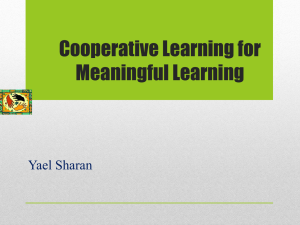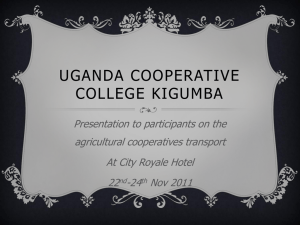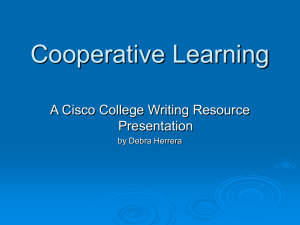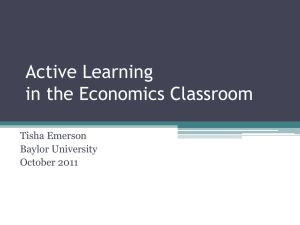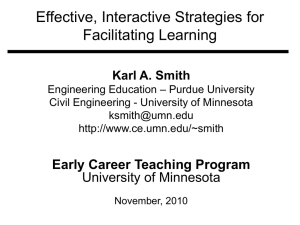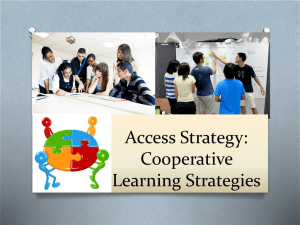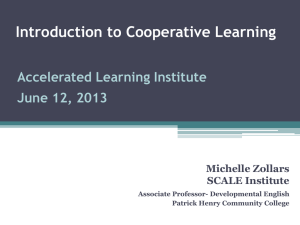Cooperative Learning
advertisement
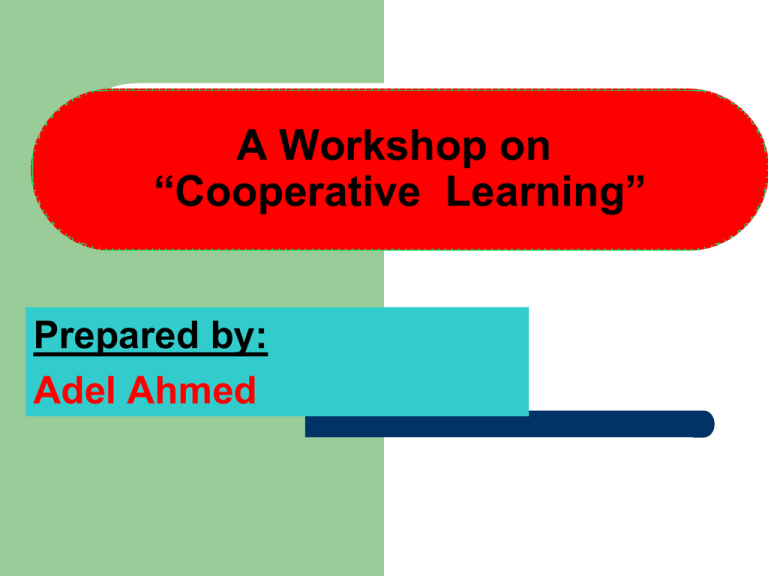
A Workshop on “Cooperative Learning” Prepared by: Adel Ahmed Points of Discussion 1- What is cooperative learning? 2- The importance of cooperative learning? 3- Why use cooperative learning? 4 - How does cooperative learning differ from the traditional approaches? 5 - Elements of cooperative learning. 6 - The benefits of cooperative learning? 7- Criticism against cooperative learning. 8- How does Cooperative Learning work? 1-What is Cooperative Learning? Cooperative learning is a successful teaching strategy in which small teams, each with students of different levels of ability, use a variety of learning activities to improve their understanding of a subject. Each member of a team is responsible not only for learning what is taught but also for helping teammates learn, thus creating an atmosphere of achievement. Students work through the assignment until all group members successfully understand and complete it. 2- The importance of cooperative learning In essence, our religion, Islam, • urges believers and all Muslims to help each other and cooperate. "Help you one another in Al-Birr (virtue, righteousness) and ALTaqwa (piety); but don't help one another in sin and transgression." (Qur'an 5:2). To comment on this, Mawdudi, 1996 p.77 says that Allah asks Muslims "to cooperate in acts of virtue and piety and not to cooperate in acts of sin and injustice". Undoubtedly, receiving science and learning is an end in Islam. That's why cooperation in learning in highly appreciated. Cooperative learning techniques: *promote student learning and academic achievement *increase student retention *enhance student satisfaction with their learning experience *help students develop skills in oral communication *develop students' social skills *promote student self-esteem *help to promote positive race relations Cooperative learning differs from traditional teaching approaches because students work together rather than compete with each other individually. Cooperative learning takes place when students work together in the same place on a structured project in a small group. Mixed-skill groups can be especially helpful to students in developing their social abilities. 1. Positive Interdependence (sink or swim together) 2 2. Face-toFace Interaction (promote each other's success) 3. Individual & Group Accountability 1 5. Group Processing 4. Interpersonal & Small-Group Skills

